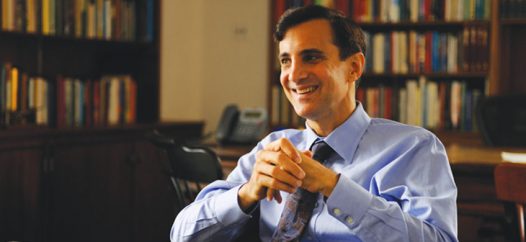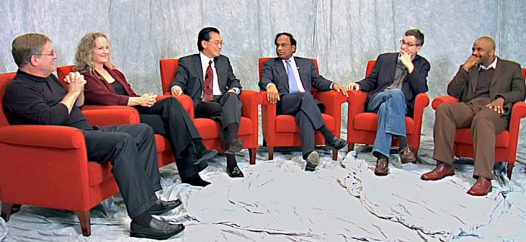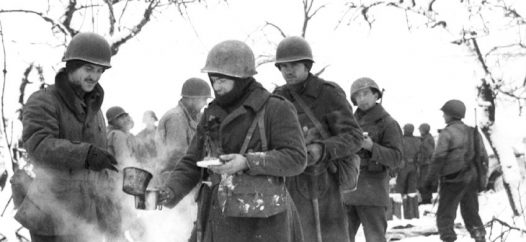Category: Features
The first piano Dasha Bukhartseva ever played was an old, poorly tuned upright that sat in her aunt’s living room in Vishniaki, a small village in Ukraine. Barely a toddler, she’d waddle over to it, open the lid, and bang away at the keys for hours. At age 8, having moved with her mother, Natasha, […]
Read more“If you had a million dollars for health, what would be the best way to spend it?” That question, posed by the Disease Control Priorities Project (DCPP) in August 2008, is poignant, in a way. How could anything be accomplished with only a million dollars? There seems no end to global public health problems. HIV/AIDS, […]
Read more“SEVEN THOUSAND TEENS dropped out today.” That was the bomb that U.S. Under Secretary of Education Martha Kanter dropped in the middle of a lengthy appraisal of No Child Left Behind last December. She, along with five other panelists, had been invited by the Johns Hopkins School of Education to discuss, before an audience of […]
Read moreTSAVO, COLONIAL EAST AFRICA, 1898. It was another long night for Lieutenant Colonel John Henry Patterson, a British civil engineer. Clutching his rifle, he crouched inside a deserted railway-camp hospital, waiting for the lions to return. A pair of them had been prowling around the camp together, killing the workers who were building a railroad […]
Read moreThe Universe works. It has to. And yet humanity remains humbled: Mysteries endure about how, exactly, the wheels on The Big Machine turn. Our knowledge is sketchy, a dark picture punctuated only by bits of theoretical light. So, physicists ask Big Questions: What makes up the force that pushes the Machine outward faster and faster? […]
Read moreHalf an hour after it was scheduled to begin, a September meeting of the East Baltimore Early Child Development Working Group gets under way. A dozen of the group’s members—representing Johns Hopkins University, the mayor’s office, and various community organizations—nosh Danish and sip coffee as Margaret Williams, director of the Maryland Family Network, reports on available grant money.
Read moreThe president of Johns Hopkins University is by definition a very busy person. Ron Daniels, No. 14 on the list of men elected to his office, will be no exception, by the looks of it. Ten days after an unforeseen event crowded onto his calendar—successful surgery for a gastrointestinal stromal tumor on his duodenum—Daniels was walking campus with Provost Lloyd Minor, conducting conference calls, and trying to heed his doctors’ advice for recovery in the face of what he called his “constitutional inability to remain at rest for very long.”
Read moreThink back, if your memory banks extend that far, to the heady days of the 1960s. Amid civil disturbances and a generational revolt against a war, Americans—no matter their differences—faithfully shared one civic religion: progress. The 1964 World’s Fair in New York highlighted the “miracles”—jet packs, flying cars—that would come to those who survived long enough. A TV-cartoon family from the future piloted rocketish bubbles through the skies. Government officials spoke of winning the war on cancer. Neil Armstrong walked on the moon. There seemed to be no constraints on the wonders technology and medical science would bring.
Read moreIt’s 1939. Adolf Hitler has set his sights on Poland. In anticipation of war, London holds trial blackouts, and The Sun, Baltimore’s flagship daily newspaper, dispatches reporters to Europe. By fall, the Second World War has begun and during the next six years, the Sun’s war correspondents risk their lives to send home a series of powerful narratives, astute in their observations and often prescient in their military comprehension. Their bylines appear in reprints across the world as they break news, beating even The New York Times in their coverage of the war’s battlefronts.
Read moreOne would be hard-pressed to disapprove of autodidacticism. Consider a list of notable alumni from the academy of the self-taught: René Descartes, Benjamin Franklin, Abraham Lincoln, William Blake. Michael Faraday apprenticed himself to a bookseller and read everything he could before going on to figure out electromagnetism. August Wilson schooled himself at the Carnegie Library in Pittsburgh after dropping out of the ninth grade. Arnold Schoenberg claimed to be an autodidact, and who are we to dispute it? Frank Zappa advised, “Forget about the senior prom and go to the library and educate yourself, if you’ve got any guts.” Hear, hear. (Though if the prom band is playing Frank Zappa songs, we’re donning a powder-blue brocade tux and we’re going.)
The systematic didacting of oneself—it’s not a verb, but it ought to be—requires printed text bound between boards. Twitter, Facebook, Wikipedia, or an iSquint will not suffice. And because we subscribe to the advice of Isaac Watts in his 1741 volume Improvement of the Mind—“It is of vast advantage to have the most proper books for reading recommended by a judicious friend”—we consulted a roster of judicious friends to compile some required reading for an autodidact’s course catalog. (The course titles and descriptions are our invention.) We grade on the curve and will allow you to set your own pace, but do proceed with one last piece of advice from the good Mr. Watts: “Have a care of indulging the more sensual passions and appetites of animal nature; they are great enemies to attention.” Your summer of beach reading is over. It’s back to school, even for the self-taught.
Reader, didact thyself!
Read more



